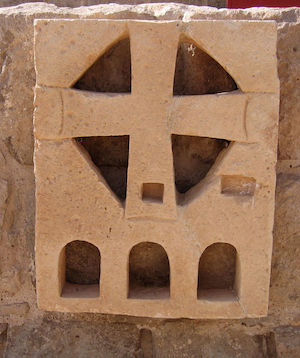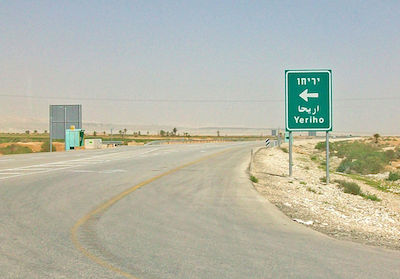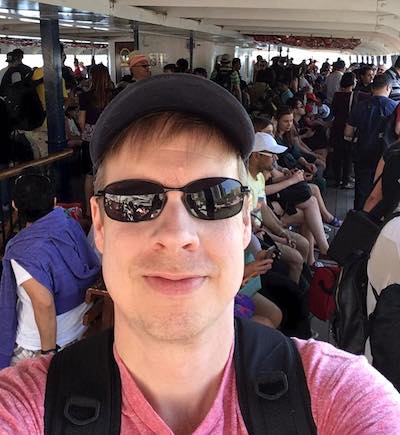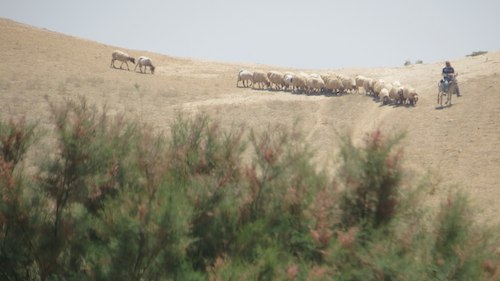A version of this sermon was preached on Sunday, July 10, 2016, at Kingsway Baptist Church in Toronto. The Scripture readings are Amos 7.7-13 and Luke 10.25-37
Last week, we considered the story at the beginning of Luke chapter 10 about Jesus sending a contingent of 70 unarmed disciples out into a world that He knows to be threatening and unwelcoming. Jesus sends them out without so much as a purse, a bag, or even sandals, saying, “Behold, I am sending you out like lambs into the midst of wolves” (Luke 10.3).
I submitted to you that the implication of this text is that answering Jesus’ call to be disciples on mission requires us to be exceedingly brave and profoundly vulnerable: to make ourselves utterly dependent on Christ by not carrying our own supplies, because when we do the packing, we invariably bring our own agendas, presumptions, and expectations along on the journey. Which means we tend to make things far too complicated. We tend to magnify lesser concerns into primary concerns, and predispose ourselves to missing what God is up to, because we wind up holding God to our standards rather than holding ourselves to God’s.
What Jesus asks of us is quite simple – not necessarily easy, but quite simple: love God with our whole selves and love our neighbors as ourselves. But to do that, we have to strip everything else away and leave everything else behind.
“answering Jesus’ call to be disciples on mission requires us to be exceedingly brave and profoundly vulnerable: to make ourselves utterly dependent on Christ by not carrying our own supplies, because when we do the packing, we invariably bring our own agendas, presumptions, and expectations along on the journey”
Several of you thanked me for the sermon as you departed, but also confronted me with variations of a particular question. “That was well said, but I am not sure what I’m supposed to do.”
“What do I do?”
It’s an honest and heartfelt question, a question asked urgently by those wanting and willing to serve Christ. For that reason, it’s a question I’m always happy to hear, and happy to engage. But it’s also a revealing question, and one that we need to be wary of. It’s a question that reveals our discomfort with what Jesus asks of us: not knowing, not fully understanding, not feeling fully prepared but going anyway. That’s a big part of what it means to be brave and vulnerable.
And this discomfort, born of our desire (our need, even) to fully understand and know for sure, should make us wary, because this discomfort can easily set us on the path toward legalism – the path paved with specific lists of clearly defined “dos and don’ts” of the faith, the path of the Pharisees that can be oh so attractive when we are uncertain. It’s a well-kept and well-intentioned path, this path of legalism – but it’s not the way of Jesus.

Not knowing exactly what to do all the time is part of the point. That’s where faith and courage and vulnerability come in. And while that may aggravate us, we shouldn’t view it as a bad thing. It’s Jesus’ way of inviting us in, not leaving us hanging. In actuality, Jesus has told us what to do. What He hasn’t and doesn’t tell us is how to do it.
Love God with your whole self and love your neighbor as yourself (Luke 10.27).
Speak peace to whatever house you find yourself in, and proclaim that the Kingdom of Heaven has come near (Luke 10.5-6).
After issuing these and other instructions, Jesus doesn’t paint for us a crystal clear picture of what this love looks like, or lay out step 1, step 2, and step 3 for speaking peace – and that’s what we’re really after when we ask, “What do I do?”
But Jesus won’t fill that in for us, because the how is ours to discover, to work out in fear and trembling, through the work of the Holy Spirit moving in us and through us. The how is where we get to contribute to God’s mission of redemption in our particular place in our particular time, to participate in the ministry of reconciliation as God’s partners in the world. And that is a gift. That is Jesus trusting us, for all of our bumbling and fumbling, as fellow heirs to His Father’s kingdom. Isn’t that a beautiful and blessed thing? Yes, it is! But it results in a two-fold challenge for us:
The first is to put our full faith in Jesus – so much so that we’re willing to travel alongside Him without our own luggage.
The second is to embrace Jesus’ full faith in us.
The intersection of this two-fold challenge is where we find ourselves this morning, in the second half of Luke chapter 10. The “Parable of the Good Samaritan” builds upon and reinforces the themes of the story of Jesus sending out the 70. And I believe this parable exists, in large part, to help us resist the path of legalism and to encourage us to remain brave and vulnerable when we ask, “What do I do?” Because the path of legalism is exactly where a lawyer (a scribe, and expert in the law of Moses) tries to steer Jesus as Jesus is rejoicing in what the 70 accomplished on their mission.
In the midst of this celebration, this lawyer stands up and asks his version of the question: “So, what must I do?” Specifically, he wants to know, “What must I do to inherit eternal life?” – a question he asks despite the fact that Jesus has just commended the 70, those who were brave and vulnerable enough to venture out without wallet, bag, or shoes; brave and vulnerable enough to speak peace to both friend and foe; brave and vulnerable enough to testify through their living, as much as their speaking, that the Kingdom of Heaven has come near.
Jesus has just commended them and urged them to rejoice that their names are written in heaven, when this guy pops up and asks, “So, what do I do?” He wants something more specific, more detailed, more clearly defined. Or perhaps he just wants something different,because he’s not thrilled with the prospect of being sent out, vulnerable, into the world. “That may be fine for them, Jesus – but what about me?”

But Jesus won’t be forced onto that road. Jesus responds to the lawyer’s question with another question. He gets the lawyer to come back to the simple, primary, but not so easy commandment God issues to God’s people: love God with your whole self and love your neighbor as yourself. Then, when the lawyer presses his case and wants to know specifically who his neighbor is, Jesus steers the lawyer onto a different road, a road that winds its way down from Jericho to Jerusalem:
A road that is dangerous and messy, as the roads of this earthly life so often are – the very type of road the 70 would have just returned from, and the very type of road this lawyer isn’t interested in.
A road that challenges those who travel it to be brave and vulnerable – and that refuses to let anyone take cover behind title, privilege, or any other pretense of the status quo.
What matters on this road is that grave injustice has occurred and the true neighbor is the one willing wade into it rather than skirt around it.
In this inquisitive lawyer’s world, people didn’t get more respectable than priests and Levites. These were the experts in knowing what faithful people should and shouldn’t do, people set apart as special (holy), people to whom deference was due. Likewise, few people were less respectable than Samaritans. They were considered heretical, unclean half-breeds who didn’t worship God in the right place or the right way, people whom the respectable should avoid.
Yet, in Jesus’ parable, on this real life road, none of those things matter. What matters is who lives, who acts like a good neighbor to the man whom this very real life has left lying in that very real ditch – not the one who feels sorry or says a prayer in passing, but the one who stops, gets down in the ditch with the man, lifts him up out of it, and carries him to a place where he can be cared for, and who promises to return to ensure that he is healing and recuperating long-term.
“What matters is who lives, who acts like a good neighbor to the man whom this very real life has left lying in that very real ditch – not the one who feels sorry or says a prayer in passing”
The Samaritan is the one who lives such a life – and he is the one the lawyer begrudgingly must admit is the true neighbor. And so the answer Jesus gives to the lawyer’s question, “What should I do?” is, “Go and do likewise.”
“Go and do likewise”: a decisive answer, but hardly a comprehensive one. There is still a lot for us to work out in fear and trembling, through the guidance of the Holy Spirit. For starters, we have to ask ourselves, “Where are the ditches along this stretch of the road of life we happen to be on – and who’s lying in them?” It’s not always obvious.
As an American, it’s pretty easy for me to see where the ditches lie and who lies in them this week. There’s a mass grave of black men killed senselessly and unnecessarily by police on one side of the road, and a smaller but no less deplorable mass grave of assassinated police officers on the other.

As an American living in Toronto, however, it’s not always so obvious to me. But that doesn’t mean there aren’t ditches here. There most certainly are ditches here, because there’s a status quo here – in this country, in this city, in this church. Who would the characters of this parable be if Jesus told it in 21st century Canada? In 21st century Toronto? After all, there’s a pocket a predominantly white affluence that exists here in this neighborhood in the midst of the most diverse city in the world.
Why is that?
Why does that question make you shift uncomfortably in your seat?
Why does it make me squirm in the pulpit?
And what go-to explanations do we have that basically involve labeling others (i.e., those who don’t live here) as unclean, uncouth Samaritans?
But even when we see where the ditches are and see clearly who is in them, we have to ask ourselves why we, like the priest and the Levite, are hesitant to venture over there, even though we know this parable so very well. The priest and Levite no doubt had their reasons – reasons that they most likely could have articulated and argued convincingly, even theologically, based on their status and position. But those reasons don’t pass muster with Jesus. And if their reasons didn’t pass muster, why would we assume ours would fair any better in Jesus’ eyes?
“Well, Jesus, I’m just so busy. I have so much to do, and this important meeting to attend, and this important deadline to meet, and this important responsibility to take care of….”
Somehow I can hear Jesus saying:
“And why is that? Why are you so busy? What are you trying to achieve, and for what reasons? And what do those reasons have to do with my Kingdom, which you’re supposed to be seeking first?
Our calendars may be the single most effective weapon that the darkness around us has to employ against the light within us. And it’s been that way for millennia.
Centuries before Jesus told the Parable of the Good Samaritan, we see this dynamic at work in ancient Israel when the prophet Amos comes prophesying to King Jeroboam. They didn’t have calendars as we know them, but they certainly had ways to categorize and compartmentalize life – which is what calendars do, and what we use them for. We also use them to categorize and compartmentalize people (such as Samaritans): those whom we pencil into and those whom we scratch out of our lives, if we have even bothered to include them in our calendars at all.

When Amos comes prophesying to King Jeroboam, the king’s priest (Amaziah) basically tells him, “Whoa, whoa, whoa. Don’t bring that word from the Lord in here. This is the king’s sanctuary. This is where business and politics occur. There’s no place for prophesying here. Take that back to Judah. Take that back to your church, back to your small group. Go share it in some place ‘spiritual.’ Save it for Sunday. This is Tuesday. There’s no time or room for wrestling with God on Tuesday.”
But Amos’ vision of the plumb line isn’t for the “spiritual side” of life. It is for life in all of its length, breadth, and depth – Sunday through Saturday. Amos is announcing that God is going to measure the entirety of our lives with heaven’s plumb line, according to the specs of God’s Kingdom – for that is what it means for us to be God’s people.
And that’s what the Samaritan understood. He didn’t let his calendar or his position get in the way of being a good neighbor, of living love, of doing what he knew was right.
So, in the spirit of Jesus’ decisive but inconclusive answer to the question, “What should I do?” I want to leave you with a series of questions to ponder today – and in the days ahead.
If you woke up in the morning and prayed, “Lord, how can I be like the Good Samaritan today?” – how would that affect how you plan and prepare for the day?
How would that impact how you scheduled meetings and other work responsibilities?
How would it affect what time you left to head into the office?
What you carried in your car or in your brief case?
What and who you blocked out time for in your calendar?
How you view the people you encounter during the day – either in the ditch or on the road?
May the Lord grant us the courage and the vulnerability to allow the Holy Spirit to measure the length, breadth, and depth of our lives according to the specs of heaven – and to venture into the ditches of this life, that we might embrace our full faith in Jesus, and Jesus’ full faith in us.
Let us go, and do likewise.
Amen.




























